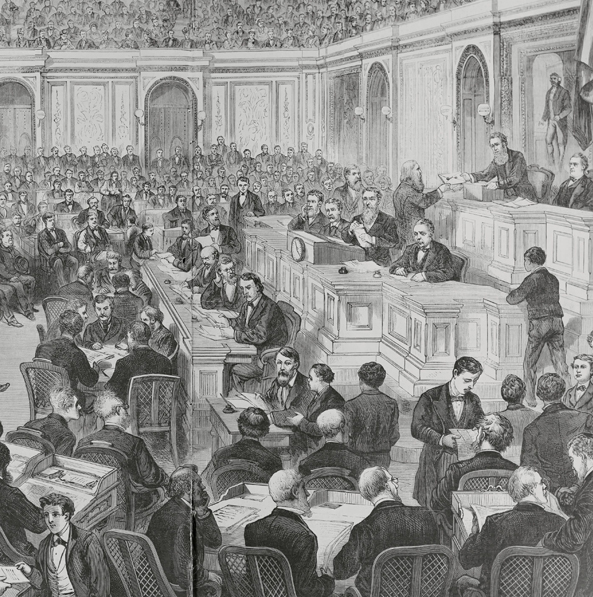Six hours of digital disruption were enough to bring the world to a halt. This is what happened when Facebook and its family, WhatsApp and Instagram, went down on the evening of the fourth of October. Of course! The application is used by billions of people. However, almost all of them aren't concerned about the impact of "social media" technology, despite its multi-faceted and multi-dimensional dangers, but they fear artificial intelligence as if it's a threat to human survival!
Robots in general, and those that rely on artificial intelligence in particular, are viewed with both optimism and skepticism. Their main benefits are that they allow us to improve efficiency, speed, and productivity, so that we can get services faster and more precisely; on the other hand, there are fears that robots will replace humans in the labor market as a consequence of the rapid development we are seeing today. Robots now work alongside humans in many fields, which means that with every progress in technology, we find ourselves losing a chunk of jobs done by human workers to the new virtual workforce.
A 2020 statistical study shows that there are 2.4 million industrial robots working in factories today around the world. In addition, a report by the Organization for Economic Cooperation and Development (OECD) provides us with shocking numbers, showing that about 14% of existing jobs “could disappear”, as the organization puts it, and another 32% are likely to witness radical change. However, if we view every new technology as an imminent threat to jobs and believe it should not be developed, we should also consider how many jobs and professions have disappeared over time, and their replacements that have kept up with the development of technology.
In his book “Futureproof”, Kevin Roose says that humans need to robot-proof their jobs by asking the question: “What could humans do that machines wouldn’t eventually do better?” Perhaps humans ability to communicate can be one of the obvious advantages that robots still have a long way to achieve. Statistically, the professions least affected by the artificial intelligence revolution are those that rely on communication rather than production, such as psychologists, teachers, and artists, as well as jobs that require a "human touch".
Perhaps the most significant thing that distinguishes humans from other creatures is our ability to create and innovate, which has made us inventors, writers and artists, capable of building and developing civilizations. Yet the question arises: How can we transfer this ability to robots? and what is the point of that?
Over the last decade, numerous researches have made enormous progress in making robots creative. For example, researchers at the Georgia Institute of Technology have developed a robot that can compose and play music. There is also a platform called Amper also allows users to ask artificial intelligence to compose music just for them. Moreover, researchers at the University of Colorado have developed an artificial intelligence system capable of writing poetry after processing thousands of poems and literary texts!
Some of us might view this as a threat. Yet, I believe that robots would be great assistants for humans rather than competitors, because the high speed at which they process large amounts of data and information will save plenty of time and effort. However, regardless of a robot’s ability to innovate, it will still be governed by a specific system, while human innovation and creativity are affected by the "randomness and absurdity" of their organized and unorganized ideas. This makes the human-robot relationship a complementary one between an innovator and an assistant, rather than a relationship between equals.
When we consider the relationship between humans and robots, and when we think about a future in which robots will exist side by side with humans, then we are witnessing an unprecedented experience in human history. Therefore, in what kind of life will machines be an integral part? Are we facing machine humanization or human digitization?
To answer these questions, many scientific attempts have been made, and still are being made, to integrate human feelings into machines, aiming to make them capable of empathizing with humans and even taking moral decisions. In 2020, for instance, a team of scientists from Osaka University in Japan built and tested a robot that can feel pain, programmed to wince when an electric charge is applied to its artificial skin, hoping that will help develop empathy to human beings. “Empathy and human characteristics were crucial if robots and humans were to live side-by-side,” said Dr. Hisashi Ishihara, who helped design the robot.
However, if we want machines to be an integral part of our lives, then the ethical side of the human experience will be the biggest challenge to AI technology. For instance, when it comes to moral dilemmas, autonomous vehicles are just as helpless as humans. A famous example is the "trolley problem," where an individual must choose between two options: Either do nothing and run over five people tied up on a train track, or pull a lever, diverting the trolley onto a side track where it will kill one person.
Despite the phenomenal progress artificial intelligence technology has seen over the past two decades, it still hasn't reached the point where the robots themselves need to make ethical decisions. This technology will then face ethical dilemmas similar to the trolley problem, and it will be necessary to define the ethical standards according to which the machine operates and such decisions are made. A variety of proposals have been offered to resolve such dilemmas, the most prominent of which is to embrace a particular school of morality. In this context, Positive ethics (Kantianism) and Consequentialism may be the most significant and well-known ethical schools. In Kantian morality, actions are judged according to their intrinsic merits regardless of other factors. Lying, for example, is immoral, no matter how necessary it is or how detrimental its consequences are. Consequentialism, on the other hand, determines the morality of an action based on its consequences. Therefore, a lie may be moral if it saves a human life. Thus, the controversy continues, as do the concerns.
The fear of integrating robots or machines into the details of our lives has increased recently, especially after Elon Musk —the founder, CEO and chief engineer of SpaceX, as well as the CEO and product architect of Tesla, the leading electric vehicles company— unveiled an electronic chip that can not only read data, but also enter information into the brain, by implanting a piece 1/20 the thickness of a human hair into the brain and connecting it to an application on the user’s smartphone.
Although Musk says that the chip's role will be to help humans do their jobs more quickly and effectively, such technologies (which can detect, control, and even dominate highly private information) make the fear of its control over humans justified. Imagine a future in which machines control entire professional sectors; in which robots complete tasks once carried a human aspect, such as surgery, education, and customer service; in which “parallel” societies are established on social media platforms; and in which personal information, medical history, bank accounts and daily activities are stored in their database. Considering all of this could make the future seem extremely bleak.
On the other hand, AI technology itself will play a significant role in helping us carry out many essential functions, such as the physiological functions we may lose the ability to perform because of illness, injury, or old age, not to mention hearing aids and implants that regulate blood sugar levels. Moreover, Musk's chip may eventually help people with chronic diseases such as Alzheimer's or schizophrenia, or even cure depression. Machine have been helping humans for a long time, as served as “an extension of us” in dangerous and hard professions. Today, machine has even become a “geographical extension of us”, as it is no longer science fiction to speak about sending robots to Mars, to prepare infrastructure and to create an environment capable of accommodating humans.
Therefore, despite Stephen Hawking's warning that robots "could spell the end of the human race" if we do not find ways to curb their intelligence, we should not be intimidated by the idea of using a smart chip, a lens, or even a car that can choose its own route. Eventually, human beings may be able to imbue an inanimate machine with human characteristics that, to this day, still belong exclusively to mankind. Thus, the smart car could be programmed to be “altruistic”, for instance, to hit a wall and save everyone!
Keep in touch
In-depth analyses delivered weekly.

Related Analyses:







.jpg-%D8%A7%D9%84%D8%A7%D9%84%D8%A9-%D9%88%D8%A7%D9%84%D8%A7%D9%86%D8%B3%D8%A7%D9%86.jpg)




